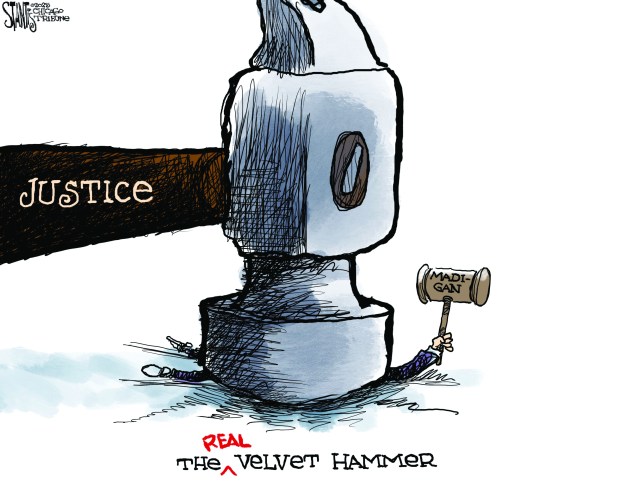As the chair of City Council’s Finance Committee, it is incumbent upon me to correct the record on the politically motivated posturing that has been circulating regarding this bond issuance. Overnight, those who know nothing about municipal finance seem to believe that they have a stronger grasp on bond amortization schedules than the city’s own chief financial officer, who has decades of experience in public finance. While scrutiny of public finance decisions is always welcome, outright duplicity regarding the city’s fiscal plan is a disservice to the residents and businesses that depend on critical infrastructure funded by municipal bonds.
Let’s set the record straight. Infrastructure is not a “scam” as some have asserted. The $830 million bond issuance is a responsible and strategic investment for the working people of our city who rely on our infrastructure to get around safely every day. The city’s capital improvement plan is prioritizing spending on essential public works projects — including needed improvements to several Chicago Police Department buildings and Chicago Fire Department stations.
This plan strengthens our neighborhoods, drives economic development, creates jobs and enhances citywide infrastructure. It also ensures that every community can address their local needs by repaving streets and alleys, modernizing street lighting, upgrading sidewalks and ramps, replacing lead service lines and more.
Much of the criticism of this bond issuance has focused on one potential repayment schedule. These misguided concerns are due to a willful ignorance of how and why the city is proposing to structure the payments. The city structures the amortization such that annual costs for debt grow at a manageable pace for taxpayers. Accelerating the payment of the principal of the city’s bonds will lower the total interest costs, but will also require the city to budget for steeper annual spending increases.
The reality is that a repayment plan is impacted by many factors, including financial market conditions, larger scale tax policy changes, opportunities to refinance existing debt, and unexpected legislation or court rulings impacting the city’s other liabilities, especially pensions. In fact, the plan that was presented was the most conservative strategy given the city’s outstanding general obligation debt.
It’s imperative that we responsibly and strategically structure each individual bond transaction in the context of the city’s entire debt profile. Currently, the city has a front-loaded general obligation debt profile, and we’re rapidly paying down debt each year. In fact, the city will pay down approximately 39% of its outstanding principal over the next decade. This existing debt profile places a greater burden on current residents relative to future residents. In light of this, what the example repayment structure really does is level the playing field for current taxpayers. The fact that the same voices who objected to the supplemental pension payment are now objecting to this bond issuance exposes the disingenuous, political nature of these attacks.
There will also be future opportunities for the city to issue and refinance bonds that are paid more quickly as we secure revenues and manage our budget to that end. The repayment of this particular bond is in line with the standard payment schedule for capital bonds, and mirrors how the city has paid off these types of bonds in years past. The specific two-year delay in payments is simply a consequence of how the budget and levy years interact, which is difficult to grasp if one has no understanding of municipal finance.
The city’s Series 2024A bonds followed a similar structure as the proposed 2025 bond, with the majority of principal coming due further in the future. Those structures did not result in credit rating changes or result in poor investor feedback. On the contrary, the credit rating agencies and bond investors understood that the city structures individual debt financings and refinancings to achieve optimal results for taxpayers in totality.
The idea that this bond issuance “kicks the can down the road” is another falsehood. In fact, the opposite is true. Deferring infrastructure maintenance only gives rise to higher costs, greater liabilities and diminished quality of life for residents. The cost of a bridge collapse or an individual being injured from a fallen light post is exponentially more than the cost of consistent, responsible maintenance.
Aldermen and stakeholders should evaluate this bond issuance on its merits, recognizing the necessity of capital investments to keep our city moving forward and ignore the dubious arguments being made by those who simply seek to undermine this administration.
The insinuation by some that this infrastructure bond issuance would somehow be used to pay for pension payments at Chicago Public Schools is outright erroneous. Those who propagate such falsities earned their finance degrees through scrolling on social media and only add to the chaos when they try to promulgate falsehood in the public square as factual discourse.
During times of political uncertainty, it is important to encourage serious debate and not brazenly disseminate fallacies for political points. We cannot afford to wait on the state or federal government to carry out this critical work, it’s on us to do it here at home.
Chicagoans deserve infrastructure that is safe, functional and forward-thinking. That is exactly what this bond issuance will help deliver. It is time to move past political grandstanding and focus on the safety, needs, and welfare of everyday Chicagoans.
Pat Dowell is alderman of the 3rd Ward and chairman of the Finance Committee.
Submit a letter, of no more than 400 words, to the editor here or email letters@chicagotribune.com.



